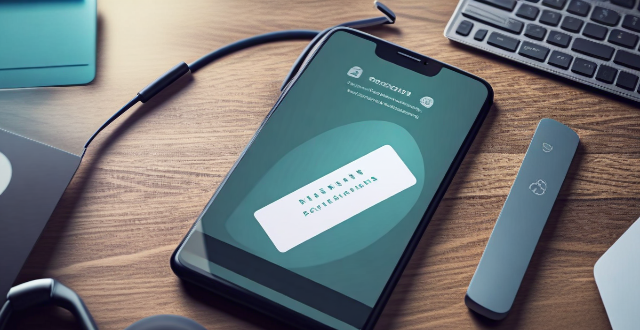The article provides a comprehensive guide on determining the security of mobile applications. It emphasizes checking the source, examining app permissions, looking for security measures, reading privacy policies, keeping software up-to-date, using antivirus and anti-malware software, being wary of phishing attempts, and conducting personal research as key steps to ensure the security of a mobile app. The guide also highlights the importance of scrutinizing third-party app stores and being cautious of apps that mimic well-known brands. Overall, it stresses the need for a healthy level of skepticism and staying informed about best practices in app security to protect personal information.

How to Determine if a Mobile App is Secure
When downloading and using mobile applications, it's crucial to ensure that they are secure. Here are some steps to help you assess the security of a mobile app:
Check the Source
Official App Stores
- App Store (iOS)
- Apple's App Store has a strict review process for apps.
- Look for the developer's name and reputation.
- Google Play Store (Android)
- Google also reviews apps before making them available.
- Check user ratings and read reviews for any red flags about security or privacy concerns.
Avoid Third-Party App Stores
- Third-party app stores may not have the same level of scrutiny as official stores, increasing the risk of malicious apps.
Examine App Permissions
- Pay attention to the permissions an app requests during installation.
- If an app asks for permissions that seem unrelated to its function (e.g., a calculator app requesting access to your contacts), it could be a sign of potential misuse.
Look for Security Measures
- Check if the app offers security features like multi-factor authentication or end-to-end encryption.
- For financial apps, look for additional security standards such as PCI DSS compliance.
Read Privacy Policies
- A clear and detailed privacy policy can indicate that the developers take user data seriously.
- Look for information on how your data will be used, stored, and who it will be shared with.
Keep Software Up-to-Date
- Regularly update your app to benefit from the latest security patches.
- Turn on automatic updates if your device supports it.
Use Antivirus and Anti-Malware Software
- Install reputable antivirus or anti-malware software on your device to scan apps for potential threats.
- These tools can help identify and remove malicious software.
Be Wary of Phishing Attempts
- Be cautious of apps that mimic well-known brands in an attempt to trick you into providing sensitive information.
- Legitimate apps will not ask for sensitive information through the app itself; instead, they will use secure webpages or in-app browsers.
Conduct Your Own Research
- Search online for reviews or news about the app and its developer.
- Websites like Reddit, Quora, and specialized forums can provide insights from other users.
By following these steps, you can significantly reduce the risk of downloading and using insecure mobile apps. Remember, maintaining a healthy level of skepticism and staying informed about best practices in app security is key to protecting your personal information.